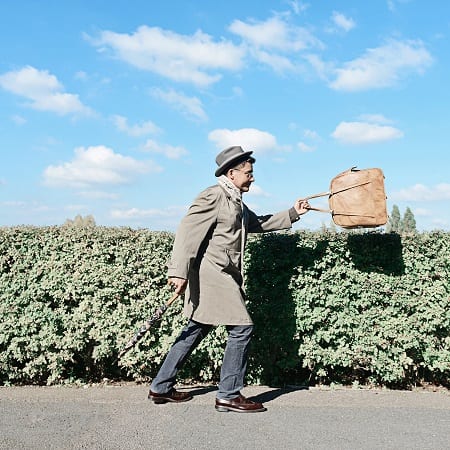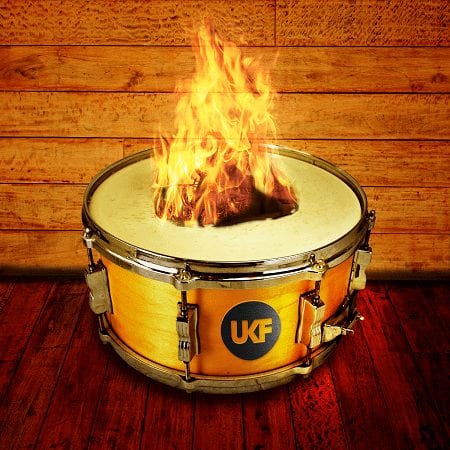As boss of one of the most recognised drum & bass labels in the world, Tony Colman aka London Elektricity would be forgiven for taking it easy in the studio, but that’s far from the case.
The Hospital Records honcho is now an impressive six albums deep following the release of the stunning Are We There Yet? Not bad going for someone who dedicates much of his time to nurturing new talent and quite an unusual precedent for a label boss…
“I guess it is a bit uncommon for someone in my position to have released as many albums as I have, but ever since I was a kid I’ve wanted to do the opposite to everyone else, whether that’s how I run a label or how I make a track.”
“After I released Yikes, the label was so busy that I tried to not be an artist and it almost killed me – it made me feel extremely depressed. As a result, I kind of restructured the organisation to give me the space to release music whilst remaining at the helm. Luckily I’ve got an amazing team that enabled me to do it.”
We caught up with one of the most instrumental figures in D&B to talk about his new album, the scene across the world and the latest developments at Hospital Records.
(Image credit: Hana Makovcova)
Hi Tony, what have you been up to this morning?
Hi, I’ve just been in a meeting on American mechanical royalties, which is probably one of the least exciting things on Earth…
Yikes, I guess we could talk about that, but let’s talk about the album instead… How were you feeling the night before it was released?
I think I was probably less nervous than I’ve been on previous albums but if you ask my wife the same thing she’d probably say I was as stressed as always!
Surely releasing an album gets easier each time though?
Nope, it doesn’t matter how many albums you’ve released, it’s still a scary experience. However good you think it is, you have no idea how it will be received by the public. Having our own web shop at Hospital is a bit of an advantage as I could see how many people pre-bought it but I still have very little idea how well it’ll do. The music industry changes every single day which makes it even harder to predict.
Did you have a vision of what you wanted this album to be before you wrote it?
I went into it with a definite intention of not making any dance floor tunes, but ironically, I’ve ended up with about nine tunes I could easily play out in a club, which is the most on any album I’ve ever written! I think it’s partly to do with the fact the nature of the dance floor has changed and there’s been a massive renaissance in liquid D&B. Yikes came out in the peak of the EDM climate but now people are all about hearing deeper tunes on the dance floor. It’s a constantly changing climate.
So do you have to consider this changing climate before each album?
No, I deliberately don’t because I don’t feel like I should. I think I’m old enough and I’ve got enough followers who understand the journey I’ve been on and understand that when I make music, I start from scratch and make what I feel in my heart and head. I don’t pay any attention to what’s going on around me.
Fair enough. As someone who likes to do things a bit differently, is there anything unusual about how you produced this album?
Of course! I moved house four years ago and built a new studio, which meant I had to shift crates and crates of old multitrack tapes I recorded on my mum’s tape recorded that stretch all the way back to my youth. I digitised nearly all of that material and used it on lots of the tracks, so there are sounds on this album that I recorded when I was around fifteen! The intro to ‘Swivel’ is a great example; it features some strange piano chords I recorded normally before turning the tape over to discover they sounded wicked backwards. During the recent studio move, I found them in really bad condition but restored them for this track. It’s mad to think those chords are thirty years old…
Other than ancient tapes, is there anything else special about this album?
The other thing that really sets this album apart for me is the fact I spent two weeks solidly recording my grandfather’s old Steinway piano, over-dubbing and trying new things out. It’s a family heirloom and dominates our house but I’ve never properly used it. As it’s all actual live recording, not just a plug-in, it has drenched the album in such warmth and given it some emotional significance too. I’m a real plug-in fiend but there’s nothing quite like the real thing.
Some nice videos have surfaced for a few of the tracks – how did these come about?
A super talented guy called Kenny has done a video for every song on the album. His work is amazing. I said to him I don’t want any narrative videos because I think their days are over; it’s all about something that’s visually and emotionally going to grab you, whilst being relevant to the song – I think it’s the way forward for music videos. It sounds pretentious but I’d describe them as conceptual, visually ambient videos.
What are the main changes in the industry you’ve observed since you released Yikes?
Aside from the musicality coming back, the obvious other change is the rise in streaming, which has changed the whole music industry massively, not just D&B. These days it’s also far more important to come up with a limited physical version of a release; something a bit special people can’t get for the regular album price. My boxset for this album, for example, includes signed vinyl, a USB stick that’s shaped like me, postcards signed by me, a map of the physical journey that the album takes… loads of little extras that people can get their hands on if they wish.
Speaking of maps, can you provide a brief global D&B report? What’s happening across the world right now?
We’ve noticed that there’s a new wave of producers in America who aren’t making the usual EDM and tear-out stuff, but are in fact coming through with some beautiful musical D&B, which is really encouraging. There’s the likes of Ownglow and Kid Hops from the States making some really nice stuff. Then in Holland, particularly Amsterdam, there are some really talented young producers coming through, mainly thanks to the Liquicity brand. Our nights are selling out big clubs over there which is a dream come true for me. Musicality is definitely coming back into the genre and it’s a worldwide phenomenon in certain hotspots.
On to Hospital business; do you encourage new artists to make a certain style of music when they sign?
Definitely not. If we sense that a recently signed artist is purposefully trying to make ‘tunes for Hospital’ we tell them to stop it immediately; we want our sound to grow and the only way it’s going to do that is if people make stuff that we haven’t heard before, so it’s quite the reverse. A lot of people have a pre-conception that we impose a formula upon our artists but that’s far from the truth. We encourage our artists to come up with something genuinely new or else we’ll just become stale as a label.
I can definitely hear that – there seems to be a lot of diversity on Hospital at the moment
Yeah I’d say there is. On Med School, for example, if you compare Blue Leaves by Etherwood to People On The Ground by Royalston, they’re two completely different albums. Then on Hospital there’s Ricochet by Reso alongside albums by Logisitcs and myself, which again are the complete opposite. We get bored too easily, so if everything sounded the same it would be a nightmare!
Have there been any recent exciting developments at the label?
We’ve started our own DJ booking agency called Clinic Talent. As is the Hospital way, we’re going to grow it slowly; we’re not going out guns blazing trying to sign big DJs. Instead, it’s for DJs who we think are very talented but don’t have an agent. There are lots of agents who will happily represent massive artists but aren’t interested in the smaller guys, which means the smaller guys haven’t got a platform to grow. This is a complete experiment, to be honest, but the person who’s stepped up to run it is the best person for the job; Chris from Blu Mar Ten. In terms of contacts and respect there’s nobody else quite like him.
And the recent Enter Shikari collaboration seems pretty exciting too, what’s the story behind that?
Rou from the band is a massive Hospital fan and wanted their whole album to be remixed by Hospital and Med School artists. This ties in with us wanting to do things a bit differently to other labels and I think it also shows that Enter Shikari have faith in the diversity of our sound. I really enjoyed remixing Dear Future Historians and enjoyed listening to what everyone else came up with, everyone did a wicked job.
Finally, what can we expect to hear coming from the Hospital camp over the next few months?
We’ve got another edition of the Fast Series coming soon, but I’m not allowed to say what this one is called just yet. That’s been mixed by Dan (Nu:Tone). Then there’s Urbandawn’s EP dropping in December, which is sounding absolutely beautiful. Next year’s nearly all planned out – I can tell you that we’re going to hit the ground running in 2016!
London Elektricity – Are We There Yet? is out now. Support:


